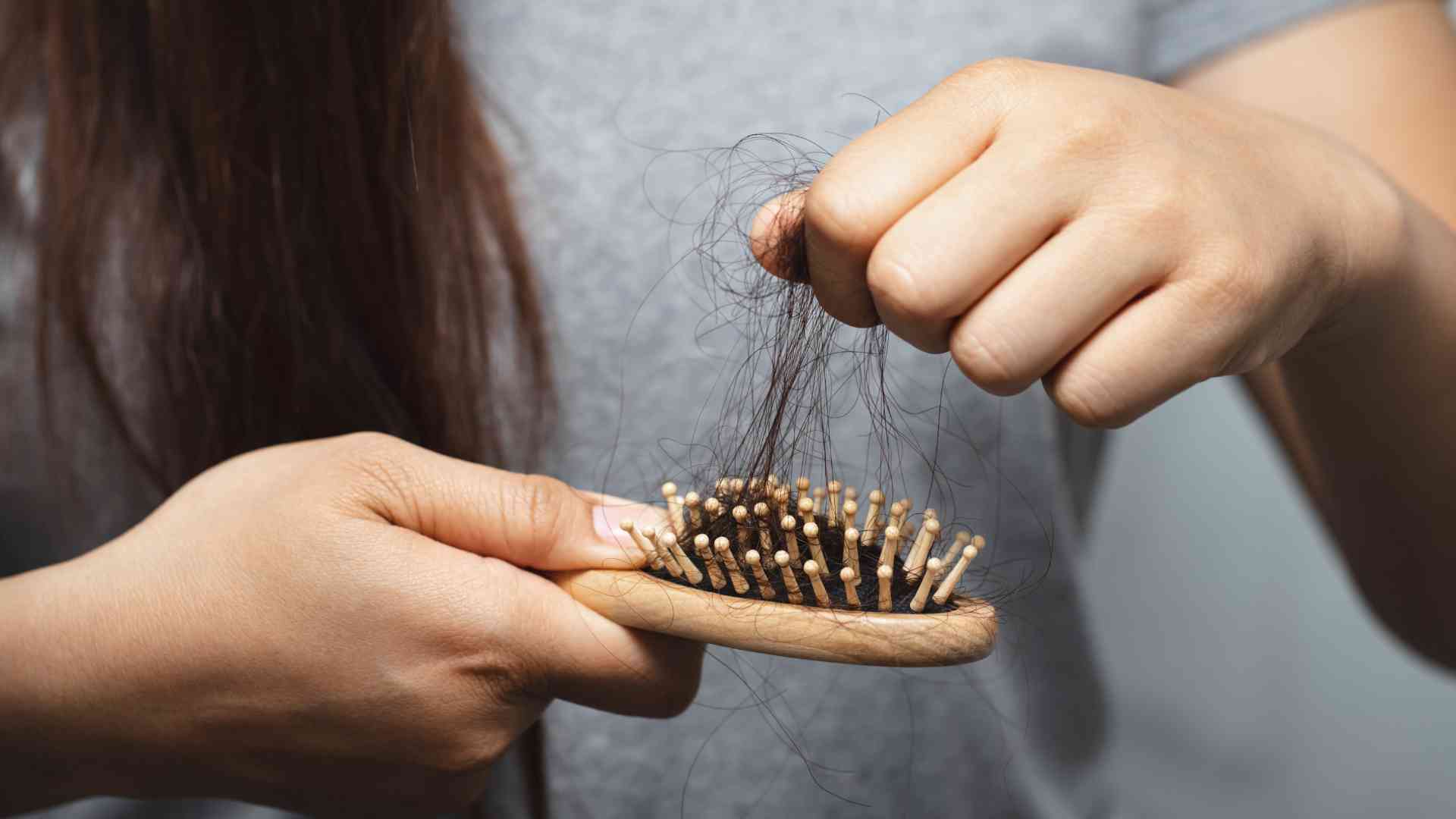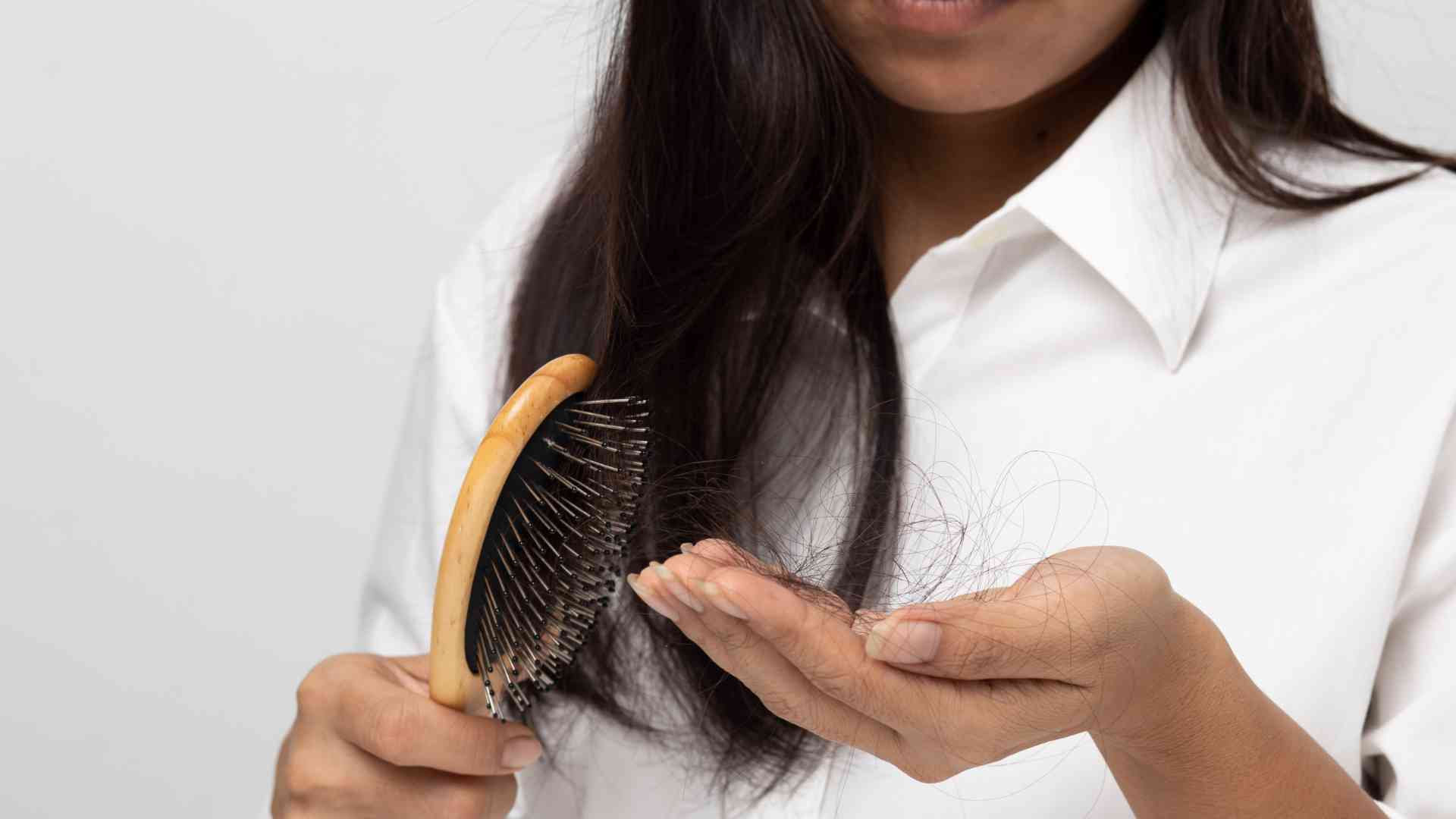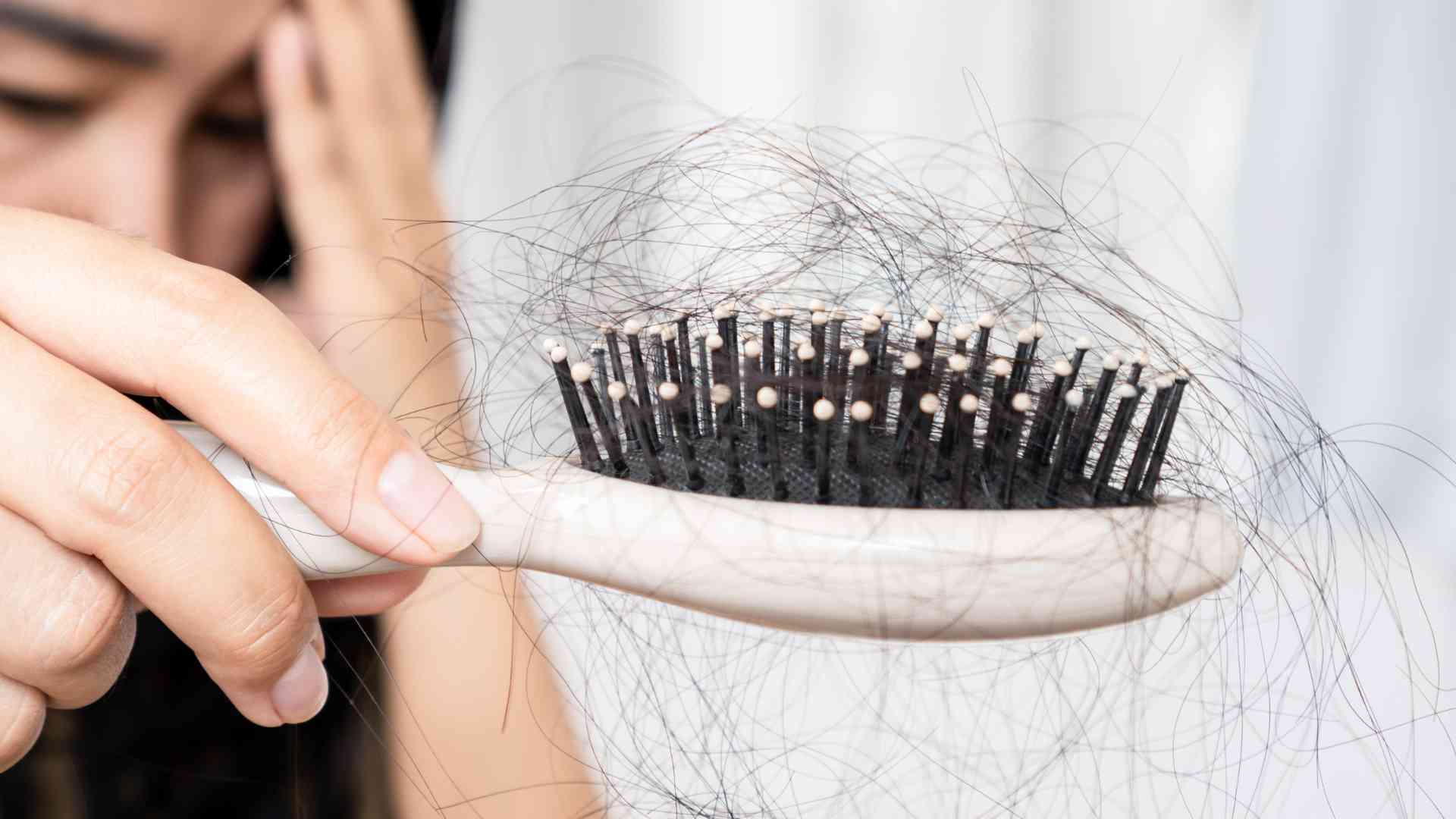Hair loss, an issue that transcends gender, age, and background, carries a weight that extends beyond mere aesthetics. Beyond the mirror’s reflection lies a deeper impact on self-esteem and overall well-being. However, what might often remain in the shadows is the lesser-known truth: hair loss can serve as a subtle indicator of underlying medical conditions.
While hair loss can profoundly affect one’s self-perception, it can also function as a quiet messenger. Often, changes in hair health are more than just superficial shifts. They can signify potential disruptions within the body, hinting at a broader context that demands attention.
In this exploration, we venture into the realm of hair loss not merely as an isolated concern, but as a potential window into an individual’s health. We delve into the intricate web of medical conditions that can trigger or exacerbate hair loss, unraveling the hidden connections that can exist between outward appearances and inner health. As we uncover the diverse range of medical factors at play, we begin to understand the profound interplay between hair and health.
The Complex Relationship Between Health and Hair
The intricate connection between overall health and hair health is an often overlooked aspect of our well-being. Our bodies operate as integrated systems, and changes within can manifest in various ways, including hair loss.
External Manifestations of Internal Balance
Our hair reflects the intricate interplay between internal balance and external appearance. When the body undergoes significant changes due to factors like stress, hormonal shifts, nutritional deficiencies, or underlying medical conditions, these shifts can become evident through hair loss or changes in hair quality.
Unlocking the Hidden Messages: Hair Loss as a Possible Indicator
Recognizing hair loss as a potential signal of underlying medical issues opens a doorway to holistic health awareness. While it’s natural for some hair loss to occur over time, excessive or sudden shedding can be a red flag. This perspective empowers individuals to view hair loss not only as a cosmetic concern but as a mirror reflecting potential health imbalances that deserve attention.
As we explore the nuanced interrelation between health and hair, we uncover the layers of communication within our bodies. Embracing this holistic view encourages us to respond to hair changes with curiosity, compassion, and a proactive approach to identifying and addressing any underlying medical conditions that might be at play.
1. Thyroid Disorders and Hair Loss
In the intricate tapestry of medical conditions that can trigger hair loss, thyroid disorders stand as a prominent player. These disorders, encompassing both hypothyroidism and hyperthyroidism, wield the power to disrupt the delicate balance of the hair growth cycle.
Thyroid Disruptions: Impact on Hair Growth
Hypothyroidism, characterized by an underactive thyroid gland, can lead to hair loss due to a slowdown in the metabolism and reduced cellular activity, affecting the hair follicles’ vitality. On the other end of the spectrum, hyperthyroidism, marked by an overactive thyroid, accelerates bodily functions and metabolism, which can push hair follicles prematurely into the shedding phase.
The Vital Role of Thyroid Function Testing
When investigating hair loss, considering thyroid function is paramount. Thyroid function testing, which typically involves measuring levels of thyroid hormones like TSH, T3, and T4, can provide crucial insights. These tests help identify any thyroid imbalances that might be contributing to hair loss, enabling timely interventions and restoring both thyroid health and hair vibrancy.
In the complex landscape of hair health, recognizing thyroid disorders as a potential catalyst for hair loss empowers individuals to seek medical evaluation and targeted treatments, ultimately nurturing holistic well-being from within.
2. Autoimmune Disorders and Alopecia

Within the realm of medical conditions that intertwine with hair loss, autoimmune disorders like alopecia areata and lupus present a unique and complex puzzle. These disorders illuminate the body’s own immune system turning against itself, often with hair follicles as unintended targets.
Unwanted Autoimmune Responses: Hair Follicles Under Attack
Alopecia areata, a distinctive autoimmune disorder, manifests as sudden, unpredictable hair loss in localized areas. In this condition, the immune system mistakenly recognizes hair follicles as threats, launching an assault that results in hair loss. Similarly, systemic autoimmune conditions like lupus can trigger hair loss due to the immune system’s attack on healthy cells, including hair follicles.
Autoimmunity’s Broader Impact: Beyond Hair Loss
Beyond the visible consequences of hair loss, autoimmune disorders exert a far-reaching influence on overall health. Conditions like lupus involve chronic inflammation that can affect various bodily systems. Recognizing these complex interactions underscores the importance of a comprehensive medical approach to manage autoimmune disorders, ensuring not only hair health but also the well-being of the entire body.
Unraveling the relationship between autoimmune disorders and hair loss unveils the intricate ways our bodies can veer off course. As we navigate this landscape, we’re reminded of the profound interconnections within our bodies, inspiring a holistic approach to health that encompasses both inner and outer well-being.
3. Nutritional Deficiencies and Hair Health
The connection between nutrition and healthy hair is an undeniable testament to the intricate balance required for vibrant locks. Just as the body thrives on a balanced diet, so too does hair health depend on a spectrum of essential nutrients.
Nutrition’s Impact: A Vital Source of Hair Health
Adequate nutrition fuels the growth and maintenance of hair. Nutrients like vitamins, minerals, and proteins serve as building blocks for hair strands and follicles. Insufficient intake of these elements can lead to brittle, weakened hair and even hair loss.
The Missing Links: Common Nutritional Deficiencies
Nutritional deficiencies can cast a shadow over hair health. Iron deficiency, for instance, can lead to anemia, resulting in reduced oxygen delivery to hair follicles. Deficits in zinc, essential for cell growth and repair, can impact hair structure and growth. Biotin, a B-vitamin, plays a key role in hair protein formation and deficiency can lead to hair thinning.
A Balanced Diet: Sustaining Holistic Well-being
Embracing a balanced diet that includes a variety of nutrients supports not only hair health but also overall well-being. Fruits, vegetables, lean proteins, and whole grains contribute to optimal nourishment. A diverse diet ensures that hair follicles receive the essential elements they require to maintain strength and vitality.
In the journey towards lush, resilient hair, recognizing the significance of nutrition is paramount. As we savor the flavors of a diverse diet, we’re not only nurturing our bodies but also cultivating an environment where vibrant hair flourishes as a reflection of our inner vitality.
4. Hormonal Imbalances and Hair Loss

The delicate symphony of hormones orchestrates various bodily functions, including the health of our hair. Hormonal imbalances can disrupt this harmony, serving as potential triggers for hair loss and shifts in hair quality.
Hormonal Disruptions: Catalysts for Hair Changes
Hormonal changes can have a significant impact on hair health. Conditions like polycystic ovary syndrome (PCOS) involve elevated androgen levels, which can lead to excessive hair shedding and thinning. Postpartum hair loss, a common occurrence after childbirth, stems from hormonal fluctuations that affect the hair growth cycle.
Navigating Hormonal Shifts: A Vital Need
Recognizing the role of hormones in hair health underscores the importance of seeking medical evaluation and management when disruptions occur. Hormonal imbalances are not only associated with hair changes but can also signify underlying health concerns. Timely assessment and interventions, guided by healthcare professionals, are essential for restoring both hormonal equilibrium and hair vibrancy.
As we explore the intricate dance of hormones and their impact on hair, we’re reminded of the intimate relationship between our inner systems and outward appearances. Navigating hormonal shifts requires a nuanced approach, echoing the wisdom of seeking professional guidance to ensure both hair health and overall wellness.
5. Stress, Telogen Effluvium, and Hair Loss
Stress, both physical and emotional, can manifest in unexpected ways, even impacting our hair health. Telogen effluvium, a phenomenon triggered by stress, sheds light on the intricate connection between our mental well-being and the vitality of our locks.
Telogen Effluvium: The Unwanted Consequence of Stress
Telogen effluvium occurs when a significant stressor—be it physical trauma, illness, surgery, or intense emotional strain—disrupts the hair growth cycle. This disruption causes more hair follicles to enter the resting (telogen) phase, leading to increased hair shedding several months after the stressor. The result can be noticeable thinning or shedding.
Stress’s Prolonged Impact: A Hair Health Concern
Chronic stress, often an inevitable aspect of modern life, can amplify hair loss concerns. Stress hormones affect hair follicles, potentially pushing them into the telogen phase prematurely. This can result in more pronounced hair shedding, impacting the overall density of the hair.
Harmonizing Inner Peace: Managing Stress for Hair Health
Managing stress becomes not only essential for mental and emotional well-being but also a strategic approach to preserving hair health. Techniques such as meditation, exercise, deep breathing, and mindfulness can help mitigate the impact of chronic stress on hair loss. By creating an inner environment of calm, we foster conditions where our hair can thrive.
As we navigate the complex relationship between stress and hair loss, we gain insight into the profound ways our bodies respond to external pressures. The journey towards hair health and overall well-being is a holistic one, requiring us to nurture both inner peace and external vitality.
Recognizing the Signs and Seeking Help:

Our hair serves as a silent storyteller, whispering messages about our inner well-being. Changes in hair density, texture, and shedding are not to be taken lightly, as they can hint at underlying shifts within our bodies. Recognizing these signs and seeking professional guidance is paramount for both hair health and holistic wellness.
Listening to the Whispers: Understanding Hair Signals
Subtle shifts in hair can signal a need for attention. Thinning, increased shedding, or changes in texture can reflect a variety of internal changes, from hormonal imbalances to nutritional deficiencies or underlying medical conditions. Paying heed to these signals is an empowering step toward proactive health management.
Professional Guidance: A Steadfast Guide
When it comes to hair changes, healthcare professionals are invaluable allies. Dermatologists and medical experts possess the knowledge to conduct thorough evaluations, including medical history, testing, and diagnostics. Their expertise ensures that underlying issues are identified accurately, leading to targeted interventions and informed decisions.
Early Detection: A Gateway to Solutions
Embracing early detection is a powerful strategy. Identifying and addressing underlying conditions promptly can prevent further hair loss and support overall well-being. From hormonal imbalances to autoimmune disorders and nutritional deficiencies, early intervention can offer solutions that enhance hair vitality and quality of life.
In the journey toward understanding the intricate connections between hair and health, recognizing the signs is the first step. Consulting healthcare professionals empowers us to decipher these signals and embark on a path of informed choices and tailored treatments. As we navigate this voyage, we forge a bond with our bodies, nurturing vibrant hair and embracing the profound interplay of inner and outer well-being.
Watch Doctor explains how to treat telogen | Video
Top 5 FAQs and answers related to Can Hair Loss Symptom of Underlying Medical Condition?
Can hair loss really be a sign of a health problem?
Yes, hair loss can indeed be a symptom of an underlying medical condition. Changes in hair density, texture, or increased shedding can signal shifts within the body, including hormonal imbalances, autoimmune disorders, nutritional deficiencies, and more.
What are some specific medical conditions that can cause hair loss?
Various medical conditions can contribute to hair loss, including thyroid disorders, autoimmune conditions like alopecia areata and lupus, hormonal imbalances like PCOS, and chronic stress-related conditions like telogen effluvium.
How can I tell if my hair loss is due to a medical condition?
If you notice unusual changes in your hair, such as sudden or excessive shedding, thinning, or changes in texture, it’s wise to consult a healthcare professional. They can conduct evaluations, perform tests, and gather your medical history to determine if an underlying condition might be contributing to your hair loss.
Can addressing the underlying medical condition reverse hair loss?
In many cases, treating the underlying medical condition can slow down or even reverse hair loss. For instance, managing thyroid disorders, autoimmune conditions, or nutritional deficiencies can often lead to improvements in hair health.
Why is it important to seek professional help for hair loss related to medical conditions?
Seeking professional help is crucial to accurately diagnose the underlying cause of hair loss. Healthcare professionals can provide comprehensive evaluations, recommend necessary tests, and guide appropriate treatments. Timely intervention not only addresses hair loss but also supports overall well-being by identifying and managing potential health issues.
Conclusion

In the intricate tapestry of hair health, the threads of our well-being are subtly woven, often revealing hidden truths through changes in our hair. As we’ve explored the multifaceted relationship between hair loss and underlying medical conditions, a deeper understanding emerges—a recognition that hair serves as both a canvas and a communicator of our internal balance.
The Silent Signals of Change: Beyond Aesthetics
Hair loss goes beyond aesthetics, acting as a messenger that whispers about shifts within. This subtle language unveils the potential links between hair health and underlying medical conditions, from hormonal imbalances to autoimmune disorders, nutritional deficiencies, and more.
Holistic Perspective: Nurturing Inner and Outer Vibrancy
Embracing a holistic perspective on hair loss invites us to consider both the cosmetic and health-related dimensions. It’s a call to action, urging us to listen to the whispers of our hair and seek professional guidance when changes occur. In nurturing hair health, we nurture our bodies as a whole.
Guiding Hands of Professionals: A Path to Wellness
As we navigate the delicate balance between hair loss and health, healthcare professionals emerge as guiding beacons. Their expertise ensures accurate diagnosis, appropriate testing, and targeted interventions. In their hands, we find the power to unravel the intricate connections that influence our hair and well-being.
In this journey of self-discovery and care, we embrace the profound interplay between inner and outer vitality. By recognizing hair as a mirror that reflects our health story, we embark on a path that not only nurtures vibrant locks but also honors the intricate relationship between our bodies and the world they inhabit.
Please share this Can Hair Loss Symptom of Underlying Medical Condition? with your friends and do a comment below about your feedback.
We will meet you on next article.
Until you can read, How Do Genetics Play a Role in Male Pattern Baldness?